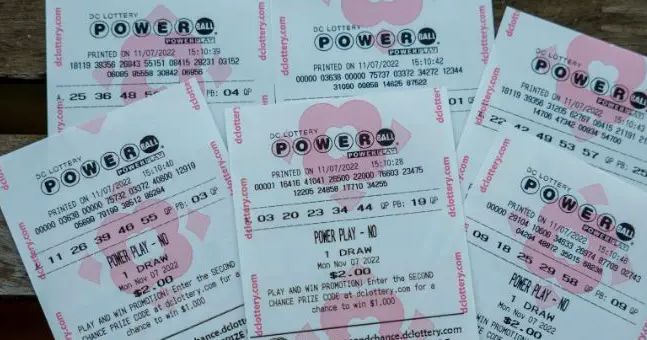
Cool Stuff | Shared | Life | Pop Culture
The Impact of Different Prize Structures on Powerball Players

Powerball is a widely recognized and popular lottery game that has captured the imagination of millions of people. With its massive jackpots and exciting gameplay, Powerball has become a household name in many countries. However, it's not just about buying a ticket and hoping for the best. It is essential to delve into the intricacies of Powerball's prize structures to fully grasp the potential rewards and opportunities that await participants.
Understanding Powerball Prize Structures
In Powerball, there are multiple prize tiers that offer varying amounts of winnings. These tiers range from the jackpot, which is the highest prize and requires matching all the winning numbers, to smaller prizes for matching fewer numbers. Understanding the distribution of these prize tiers is essential for powerball lotto players. It's worth noting that prize structures can differ depending on the jurisdiction in which the game is played. Some jurisdictions may offer fixed amounts for each prize tier, while others use a pari-mutuel system where the prize amounts are based on ticket sales and the number of winners. For example, in some regions, the prize for matching five numbers without the Powerball may be fixed at a specific amount, while in others, it may vary.
Effects of Prize Structures on Player Behavior
The prize structures in Powerball can have significant effects on player behavior. One notable influence is the size of the jackpot. When the jackpot reaches high amounts, it tends to generate a frenzy of ticket sales as players are enticed by the chance to win a life-changing sum of money. The allure of a large jackpot often leads to increased participation and excitement among players. On the other hand, the smaller prize tiers also play a role in shaping player engagement. While they may not offer the same magnitude of winnings as the jackpot, these smaller prizes contribute to the overall experience and keep players involved. They provide additional opportunities to win and keep the game appealing. It's important for players to consider the odds and probabilities associated with each prize tier.
Psychological Factors and Prize Structures
Psychological factors have a big impact on how people feel about different prize structures in Powerball. One important factor is the attraction of winning a big jackpot. When there's a chance to win a huge amount of money, it makes people really excited and wants to play the game. Sometimes, people's emotions take over and they forget to think logically about their chances of winning. They might believe that they have a better chance than they actually do or rely on luck and superstitions. Another thing to consider is how the prizes are set up. If there are more chances to win smaller prizes, it can make players happier because they feel like they have a better chance of winning something. But if the prizes seem unfair or favor only a few big winners, it can make people feel disappointed and not enjoy the game as much. So, our feelings and thoughts can play a big role in how we react to different prize structures in Powerball.
Economic and Social Implications
The way prizes are set up in Powerball can have a big impact on the economy and society. When there's a really big jackpot, more people want to play and buy tickets. This means more money for the lottery and the government. But we also need to think about the risks of getting too caught up in wanting to win a huge prize. Some people might start playing too much and have a problem with gambling. It's important for the lottery to have rules and programs in place to help people who might have a gambling problem. They can offer things like programs that let people exclude themselves from playing or campaigns that raise awareness about the risks of gambling. It's the responsibility of the lottery and the government to make sure that the prizes are set up in a way that's safe and fair for everyone.
Exploring Alternative Prize Structures
Exploring different ways to give out prizes in lotteries can make them more interesting and fit people's preferences better. One idea is to have progressive or tiered jackpot structures. Instead of just having one big jackpot, these structures have different levels of prizes that get bigger as the jackpot keeps growing. This can make the game more exciting because even if you don't win the biggest prize, you still have a chance to win a good amount of money. It also means that more people can win and share the prizes. But there are some things to think about too. It might be harder to understand and explain the different prize levels, and some people might not be as interested if there's no huge jackpot to aim for. So it's important to think about the good and not-so-good things about alternative prize structures to make lotteries fun and fair for everyone.